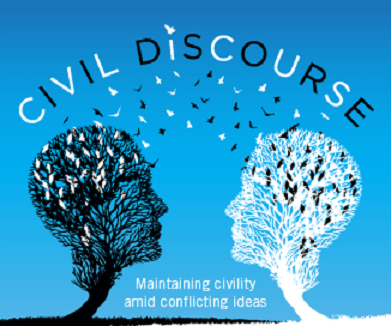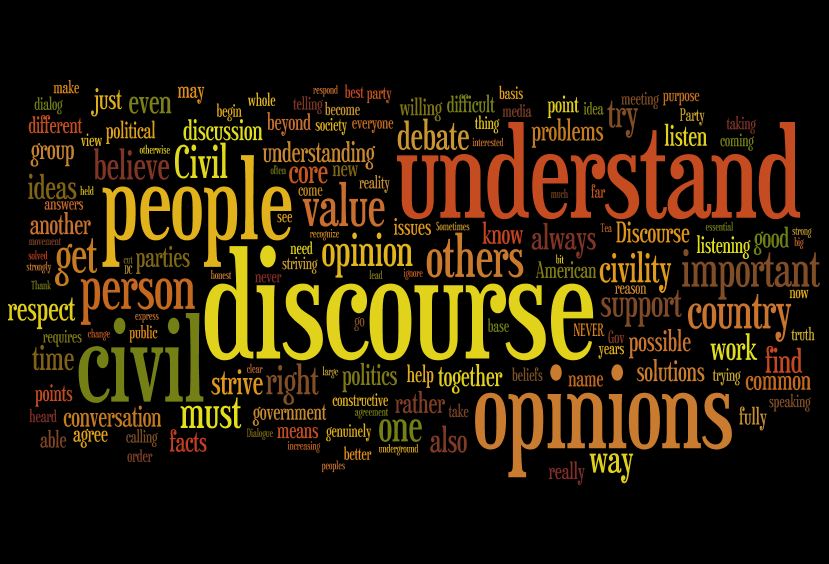Let’s Engage in Civil Discourse!

Maintaining Civility Among Conflicting Ideas – Ron Clutz
September 15, 2019
At its simplest level, civil discourse is defined as engagement in conversation intended to enhance understanding. Another way that I personally describe it is “rapidly disappearing”. Especially among today’s youth, kids my age with whom I interact with on a perpetual basis, there seems to be a culture of stating opinions without any motivation or desire to consider any other perspectives besides one’s own.
The act of shutting our minds out from any sort of outside knowledge, experiences, opinions, or perspectives seems like a simple and harmless act at first, when we see it as merely “not feeling” like listening to others. But this shutting out becomes dangerous  when people never expose themselves to anything external, and as beliefs and opinions stagnate, remaining untouched by any new perspective, the sort of disease known as intolerance creeps in and festers in the minds of the unwitting.
when people never expose themselves to anything external, and as beliefs and opinions stagnate, remaining untouched by any new perspective, the sort of disease known as intolerance creeps in and festers in the minds of the unwitting.
Many characteristics hinder the growth of civil discourse and room for proper discussion, including the lack of tolerance that causes people to only speak and send messages, rather than sending and receiving messages by listening as well, something that is at the core of communication in all forms.
While many factors contribute to this phenomenon that is spreading across many in our generation, there is one specific arena of thought and learning that could be a very effective, useful, and even powerful tool to combat the growth and festering of ignorance, intolerance, and in more extreme cases, radicalism and hate in adulthood. School! What better place to exercise proper communication of ideas, respectfully disagreement, and, most importantly, listening with the genuine desire to learn something, than a school, a place within which we spend countless hours a week among people our age with many backgrounds and ideas.
Because students spend most of their time, interact with most of their peers, and receive the vast majority of their education from school, it is crucial that schools begin to foster a culture of respect and listening and discussion skills in the student body. While school systems remain inherently flawed (nothing can be perfect), teachers can certainly still ask students to engage in discussion based learning from time to time in order to introduce and instill these seemingly basic life skills in their classrooms. Consequently, during any class discussions, students will feel more confident and empowered to speak up and share their interpretations, opinions, and questions without the fear of being unnecessarily criticized and shut down. On a small scale, this creates a positive and open classroom learning environment, and on a much larger scale, this begins the process of creating a culture in our generation of curiosity, passion, respect, and informed communication.



